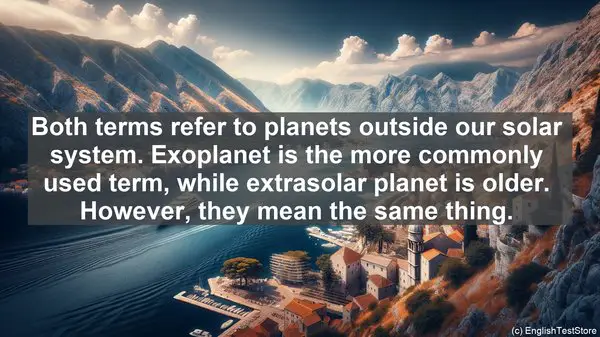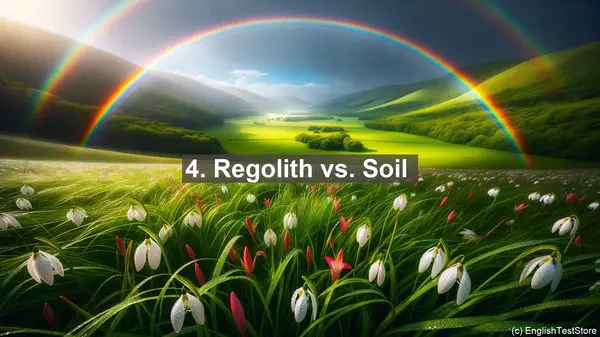Introduction
Welcome to our lesson on the top 10 commonly confused words in planetary geology. As students, it’s crucial to have a strong grasp of these terms to excel in this field. So, let’s dive in!
1. Meteoroid vs. Meteor vs. Meteorite
These three words often cause confusion. A meteoroid is a small rock or particle in space. When it enters Earth’s atmosphere and burns up, it’s called a meteor. If any part of it survives and lands on Earth, it becomes a meteorite.
2. Crater vs. Caldera
While both are depressions on a planetary surface, there’s a difference. A crater is formed by a meteorite impact, while a caldera is a volcanic depression, usually larger and caused by a volcanic eruption.
3. Planet vs. Dwarf Planet
The distinction here is based on size and other factors. A planet is a celestial body that orbits the Sun, is spherical, and has cleared its orbit. A dwarf planet, although spherical, hasn’t cleared its orbit and is usually smaller.
4. Regolith vs. Soil
Regolith refers to the loose layer of material covering solid rock on a celestial body. Soil, on the other hand, is a specific type of regolith that contains organic matter and can support plant growth.
5. Impact vs. Erosion
These terms describe different processes. Impact refers to the collision of an object with a surface, causing a crater. Erosion, on the other hand, is the gradual wearing away of a surface by natural forces like wind or water.

6. Tectonics vs. Volcanism
Tectonics is the study of the movement and deformation of a planet’s crust. Volcanism, on the other hand, focuses on volcanic activity, including eruptions and the formation of volcanic features.

7. Exoplanet vs. Extrasolar Planet
Both terms refer to planets outside our solar system. Exoplanet is the more commonly used term, while extrasolar planet is older. However, they mean the same thing.
8. Orbital Period vs. Day
In planetary terms, the orbital period is the time it takes for a planet to complete one orbit around its star. A day, on the other hand, refers to the time it takes for a planet to complete one rotation on its axis.
9. Equator vs. Prime Meridian
The equator is an imaginary line that divides a planet into the northern and southern hemispheres. The prime meridian, on the other hand, is the line that divides a planet into the eastern and western hemispheres.
10. Solar System vs. Galaxy
These terms refer to different scales. A solar system is a collection of planets, moons, asteroids, and other celestial bodies orbiting a star. A galaxy, on the other hand, is a massive collection of stars, gas, and dust held together by gravity.
